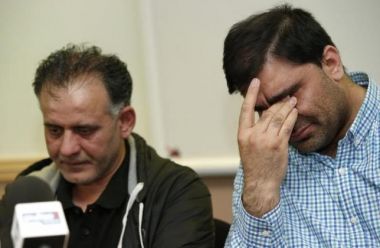Woman sees no future in 'changing' UK, joins ISIS with sisters and kids

One of three British sisters who reportedly took their children along with them to Syria to join the Islamic State believed there was no future for her daughters anymore in a "changing" Britain.
Zohra Dawood, 32, was believed to have left the country at the end of May along with her sisters Khadija, 29, and Sugra, 34, and their nine children for a long travel to Medina in Saudi Arabia. But instead of flying back to Bradford as scheduled on June 11, they flew to Istanbul in Turkey, Time reported.
They then went to Syria in two groups, according to a smuggler working for the ISIS, where their younger brother, Ahmed Dawood, 21, has been fighting under the flag of the Islamist extremist group for over a year already.
"Zohra told me this country was changing too much, and that she was going to take her daughters away because she didn't see their future here anymore," said a Pakistani woman who was a neighbour of Zohra's family.
The unidentified Pakistani woman said Zohra confided to her that she was moving to Saudi Arabia. The woman further claimed that Zohra admitted to her that she was unhappy in her marriage and that her husband, Zubair Ahmed, no longer shared a bed with her.
Zohra's family lived in Bradford, 200 miles north of London, a cradle of England's poorest communities marked with high unemployment and education levels that are lower than the national average. During the heydays of its textile industry, Bradford attracted migrant workers from South Asia, including Zorah's parents, Mohammad Dawood and Sara Begum.
Zorah's parents said they do not support their children's decision to join ISIS and to leave their husbands behind.
"We do not support the actions of the sisters leaving their husbands and families in the UK and of taking their children into a war zone where life is not safe to join any group," they said in a statement. "We plead to anyone thinking about making a similar journey not to go."
The sisters apparently have stronger ties with their brother than the family they left in Bradford.
"An essential aspect of extremism is that it has to have social support," said Arie Kruglanski, a professor of psychology and co-founder of the Center of Terrorism at the University of Maryland. "It's very important that these women left as a group, as a network of sisters supporting their brother. Groups tend to polarise around values, and as a result, they tend to be much more extreme than individuals."
According to psychologists, sibling bonds can be strengthened by strained personal relationships.
While the husbands of her sisters plead for the return of their wives and children, Zohra's husband Zubair Ahmed was in Pakistan, having been "shunned" by his wife, who is also his first cousin. He maintained to have no knowledge of his spouse's decision to move to Syria.
Zorah's and her sisters' children may become the "cubs of the caliphate," a term by ISIS for their junior recruits.
"ISIS is preparing for the future and what they're trying to do is groom the next generation of fighters," said John Horgan, incoming professor of Global Studies and Psychology at Georgia State University.











